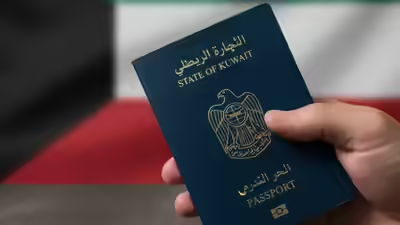In a significant and progressive move, the Kuwait Cabinet has issued a new circular outlining the rights of individuals whose citizenship has been revoked. This decision marks a turning point in Kuwait’s approach to human rights, transparency, and justice, reflecting the country’s ongoing commitment to equality before the law and fair administrative procedures. The circular, which was approved after extensive internal discussions, seeks to provide a clear legal and social framework that ensures no one is left without access to essential rights and services, even in cases of citizenship withdrawal.
The initiative is being widely viewed as a human-centered policy that balances national security considerations with compassion and justice. It also signifies a growing awareness within the Kuwaiti leadership of the importance of aligning domestic regulations with international human rights standards.
Clarifying Rights and Access to Services
One of the most important aspects of the new circular is its clear definition of the rights retained by individuals who have lost citizenship status. For years, the absence of comprehensive guidelines created confusion for affected individuals, families, and even government departments. Now, under the new directive, citizens whose nationality has been revoked will still be entitled to access essential services such as healthcare, education, and legal representation.
This new framework ensures that individuals are not deprived of basic human needs or subjected to undue hardship. It also mandates all government ministries and agencies to treat such cases with fairness and respect, without discrimination. The Cabinet emphasized that this circular is not meant to alter existing nationality laws, but to make sure the implementation process remains humane and transparent.
The government also noted that all affected persons will have the right to appeal decisions and present evidence supporting their case before designated administrative and judicial authorities. This inclusion of an appeals process represents a major leap forward in guaranteeing due process and preventing arbitrary actions.
A Humanitarian Approach to a Complex Issue
The decision to issue the circular reflects a compassionate approach to one of the most sensitive legal and social topics in Kuwait. Revocation of citizenship, often tied to national security or legal violations, has long been a controversial issue. By establishing guidelines that focus on the protection of fundamental human rights, the Cabinet has shown an effort to harmonize national interests with humanitarian considerations.
Government officials have reportedly stressed that while the state must safeguard its sovereignty and security, it is equally bound to uphold the dignity of all people living within its borders. This reflects a broader understanding that even in cases involving complex legal judgments, the human dimension must remain at the center of policymaking.
The move also complements Kuwait’s ongoing vision for governance reform, where transparency and accountability are prioritized. It sets a precedent for other state institutions to follow, encouraging a governance culture grounded in empathy and responsibility.

Streamlining the Process of Appeals and Review
Another critical component of the circular is the structured appeal mechanism it introduces. Individuals whose citizenship has been withdrawn can now formally request a review of their case through a transparent and time-bound process. The government has outlined a standardized timeline for authorities to respond to appeals, ensuring that affected individuals are not left in prolonged uncertainty.
Moreover, the Cabinet has emphasized the establishment of a dedicated administrative body to handle such reviews, separate from the entities responsible for the original decision. This structural separation aims to reinforce impartiality and fairness. Applicants will also be allowed to present documentation, personal testimony, or other supporting evidence to justify their claim for reinstatement or relief.
This procedural clarity offers hope and stability to those impacted, many of whom have previously faced bureaucratic delays or unclear communication channels. The government’s decision to prioritize a humane and efficient appeals system is widely being seen as an acknowledgment of the emotional and social toll that citizenship revocation can bring upon individuals and families.
Ensuring Social Stability and National Unity
Kuwait’s leadership understands that social stability relies heavily on maintaining fairness and trust between citizens and the state. The new circular, by guaranteeing essential rights and introducing transparent processes, directly contributes to strengthening that trust. It ensures that no one feels alienated or unjustly treated, thereby supporting national unity and cohesion.
Observers have noted that such measures are vital for preventing social divisions and fostering a sense of belonging among all residents. In a nation with a strong social fabric and deep tribal and familial ties, preserving harmony through equitable governance is seen as an essential goal.
The Cabinet’s approach, focusing on compassion and inclusion, aligns closely with Kuwait’s long-standing traditions of social solidarity and respect for human dignity. By clarifying rights and responsibilities, the government hopes to bridge gaps that might otherwise cause misunderstanding or discontent within the community.
Aligning with Global Human Rights Standards
In recent years, global attention on citizenship revocation has increased, particularly concerning issues of statelessness and access to basic human rights. Kuwait’s new circular sends a strong message to the international community that the country is actively working to meet modern governance expectations and human rights norms.
By emphasizing fairness, transparency, and access to justice, the Kuwait Cabinet demonstrates its commitment to aligning domestic policies with international conventions and best practices. This initiative also enhances the nation’s image as a country that values justice and respects international law.
Legal experts have noted that the move could serve as a model for other nations facing similar challenges. The clear distinction between lawful revocation and the preservation of individual dignity ensures that national security measures do not come at the expense of human rights.

Impact on Families and Communities
Citizenship revocation can have far-reaching implications, extending beyond the individual to affect entire families and communities. Children, spouses, and dependents often face disruptions in education, healthcare, and employment. Recognizing these challenges, the new circular mandates that dependents and family members of affected individuals will continue to receive necessary support.
Schools, healthcare institutions, and social service agencies have been instructed to ensure that children and family members of revoked citizens do not face discrimination or barriers when accessing services. This holistic approach highlights Kuwait’s recognition of the social dimensions of citizenship matters and its determination to protect the family unit.
By preserving family rights and access to opportunities, the government hopes to minimize disruptions and maintain community harmony. The directive serves as a reassurance that while legal decisions must be respected, they should never compromise the basic rights and dignity of innocent family members.
Encouraging Transparency and Public Awareness
The Cabinet has also called for greater public awareness about the circular to ensure that both officials and citizens fully understand the guidelines. Awareness campaigns and public statements are expected to clarify how the rights of affected individuals will be protected and what procedural steps they can take in case of appeal.
This transparency initiative aims to eliminate misinformation and speculation that often surrounds citizenship-related decisions. By providing clarity, the government is working to build trust in its administrative systems and assure citizens that decisions are made with accountability and empathy.
Public institutions are expected to receive additional training and guidelines to properly implement the circular. This will ensure consistency in handling cases across different government departments and prevent potential misinterpretations that could lead to injustice.
Legal Reforms and Institutional Cooperation
The issuance of this circular also signals potential forthcoming reforms within Kuwait’s legal and administrative frameworks. It demonstrates the Cabinet’s recognition that effective governance depends on coordination between ministries, courts, and human rights bodies.
The directive encourages close collaboration between the Ministry of Interior, the judiciary, and the Human Rights Committee to ensure seamless execution and monitoring. Such inter-agency cooperation is crucial for ensuring that every case is handled objectively and that affected individuals receive timely responses.
Moreover, the circular paves the way for continued legal modernization in Kuwait. By embedding fairness and due process in administrative law, it strengthens the overall rule of law and contributes to Kuwait’s ongoing efforts toward judicial reform and modernization.
Reflecting Kuwait’s Vision for Inclusive Governance
Kuwait’s leadership has consistently emphasized the importance of inclusive governance one that respects citizens’ rights, encourages dialogue, and fosters unity. The new circular fits squarely within this vision, highlighting the government’s intent to maintain justice and compassion even in challenging legal circumstances.
This decision also resonates with Kuwait’s broader development goals, particularly its commitment to social justice and equality under Vision 2035. It reflects a governance model that values people as the foundation of the nation’s progress. By prioritizing fairness, Kuwait reinforces its image as a nation that upholds humanity as a guiding principle of policy.
The circular is not only a legal reform but also a symbolic reaffirmation of Kuwait’s values compassion, justice, and respect for human dignity. It reminds citizens that governance is not solely about authority but about responsibility, care, and empathy for all individuals within the nation’s borders.
A Step Toward Greater Trust and Social Harmony
Ultimately, the Kuwait Cabinet’s circular on the rights of revoked citizens stands as a monumental stride toward justice and humane governance. It recognizes the complexities of national security while ensuring that compassion and fairness remain at the heart of administrative decisions.
This initiative reflects a leadership style that listens, responds, and evolves with the needs of society. By protecting the dignity and rights of even the most vulnerable, the government strengthens its moral and social foundations. It is a reminder that the strength of a nation lies not only in its laws but in the humanity with which it enforces them.
As Kuwait continues to navigate the challenges of modern governance, this circular represents hope — hope for fairness, accountability, and a shared belief in justice for all. Through such bold and thoughtful steps, the country reaffirms its place as a nation guided by principles of compassion, inclusion, and respect for human dignity.
Do follow Gulf Magazine on Instagram.
Also Read – Kuwait Stock Exchange Liquidity Hits KD 22.6 Billion in 2025, Marking Record Growth



